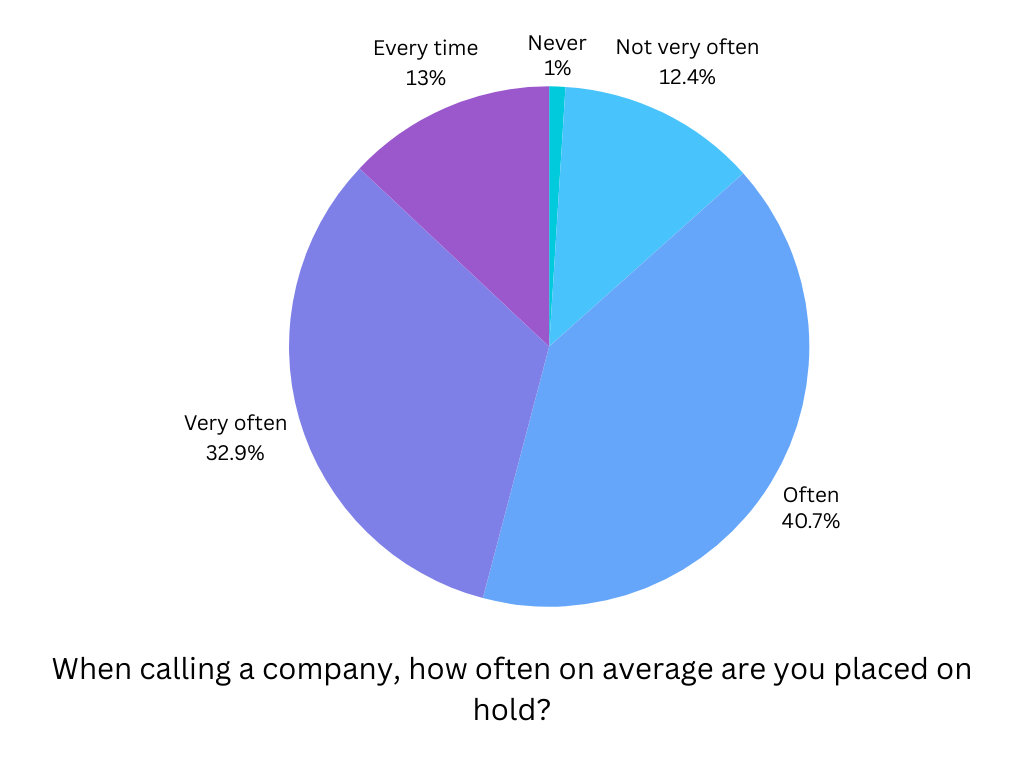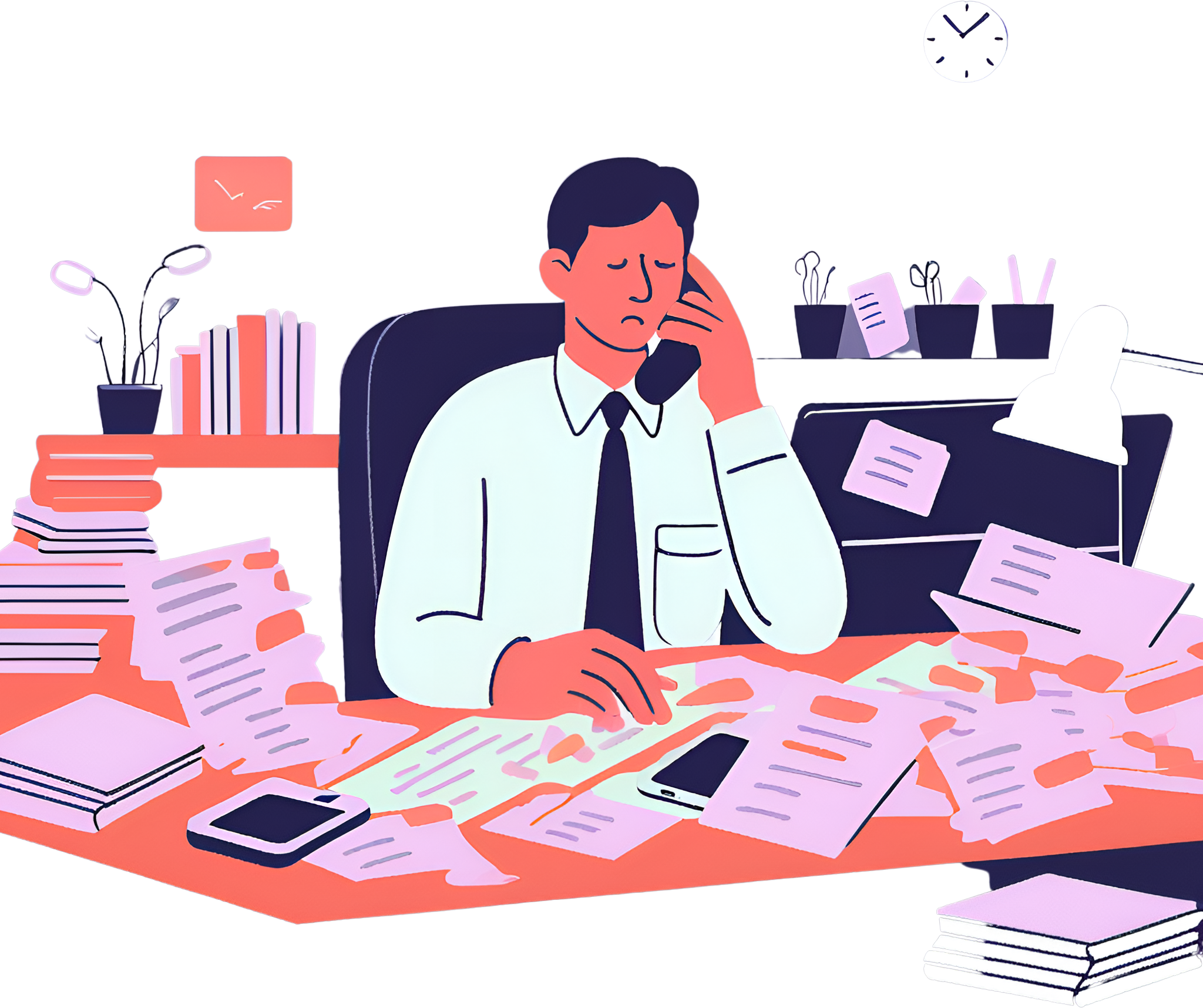The benefits of live music and the ‘goosebump’ effect
Live music has the power to bring people together, be it in a small club
Home » Please hold the line… What’s the best way to utilise hold music within your business?
Does it ever feel like your life is on hold? A recent study conducted by Microsoft in 2023 revealed that customers in the UK could be waiting up to 85 minutes to speak to some of the biggest providers of consumer goods and services. Hold music is something we have all grown accustomed to.
It has become a necessity for many businesses that receive more calls than they can answer quickly. In a 2024 survey,[i] 73.6% of respondents reported that when calling a company they are either often, or very often, placed on hold, and 13% reported that they are put on hold every single time, with 60.1% of respondents saying they usually hear music when placed on hold. But if customers expect to be kept on hold, how have we developed such dislike for it?

The original idea of hold music actually came about by accident. Alfred Levy was an inventor, factory owner and entrepreneur in 1962, when he found there was a problem with the phone lines at his factory.
There was a radio station next door and when a loose wire grazed a metal beam between the two properties, the factory turned into a giant receiver, broadcasting the signal from the radio station which could be heard when phone calls were put on hold.
Four years later, Mr Levy patented this. Since then, advancements have been made that enhanced the technology, transforming it into something we are all more familiar with today.
In a PPL PRS interview with Tim Hull from Imagesound, he speaks about how different music genres can have different effects on those that are working, waiting, or queuing in shops. He touches on the effect that certain types of music can have on customers, such as how slower or repetitive sounds can make people feel restless and frustrated when coupled with longer wait times. Imagesound provides branded radio in gyms, shops, and hospitality venues to provide a personalised feel to the customer and staff experience.
Tim explained that he understands how repetitive music can have a negative impact on people. He suggests that when brands implement their radio system, they should choose music that avoids causing this feeling, stating that it should be designed in a way that “there’s nothing ever on repeat, you never hear the same track on the same day”.
The generic on-hold or ‘elevator’ music can make people feel as if they are stuck in a perpetual queue, especially if they can start to count how any times the jingle has started over. It is key that the music you choose to play while people wait, either in person or over the phone, keeps the customers’ spirits up.

It makes you wonder, if the customer had the freedom to choose what music they hear, would this make the situation better? Only 11.8% of respondents in a recent PPL PRS survey had ever been given the opportunity to choose the music they listen to while on hold.
A number of brands, such as Octopus Energy, have introduced the option to listen to more personalised music while on hold. When an existing customer calls Octopus Energy there is a feature where the track that was number 1 in the charts when you were 14 years old plays while holding. According to research by an American data scientist and economist, Seth Stephens-Davidowitz[ii], our music taste tends to peak close to the end of puberty. This will vary for teens between 11 and 16, so with 14 being in the middle there, you can see how they chose that age. But if that’s not your jam, you can search through their catalogue of other Number 1 songs instead.
Sky have also done some research on what their customers like to listen to while on hold. With their Sky Jukebox, they found that their top genre was ‘Easy listening’ with 22.4%, closely followed by 21.3% of callers selecting ‘Pop’. There were only 21.4% of customers that made no selection, meaning a whopping 78.6% of customers that called the company made the choice to personalise their experience. This seems to corroborate our recent surveyi on hold music, with 50.2% of respondents saying that, if given the option, they would prefer to choose the genre of music they listen to while on hold.
We are creatures of habit, and unlike books and films where we may appreciate the odd plot twist or thrilling adventure, we appreciate familiarity in music. Listening to songs we don’t recognise can make people lose interest very quickly. This seems to ring true for many, with 22.8% of respondents in our recent survey stated that one of the reasons that they don’t like traditional hold music is because the tracks are unrecognisable, and they would prefer to listen to songs that they are more familiar with.
A US field study[iii] conducted by Professors of Marketing, Anita Whiting and Naveen Donthu, investigated perceived wait times versus actual wait times. They found that when customers are given the option to choose the hold music played when waiting on the phone, they had a lower perception of the wait time than callers who weren’t. These results show that those that didn’t have the choice of tracks felt like they were on the phone for longer than they were, in comparison to those that had the freedom to choose.
Ultimately, it seems as if playing any kind of music is better than nothing. The same study found that customers that had no music to listen to, to tide them over while they wait felt as if they were on hold for longer than they actually were, compared to those that had some audio entertainment.

The general consensus seems to be that people do appreciate listening to music while on hold, especially if they recognise the tunes they are hearing. If you’re looking to implement on-hold music, or are already using other kinds of music within your business, you may need a music licence.
You can give us a call on 0800 086 8820 or fill in an online form here to get a quote. You can also explore our site to find out more about the cost of TheMusicLicence and detailed information on licencing for your business sector.
Live music has the power to bring people together, be it in a small club
The end of a year is often a time for reflecting. Thinking back over the
Whether you’re a business that gets in the spirit each year, or you’re looking to
Set up a new music licence for your business or organisation.
Get TheMusicLicence
